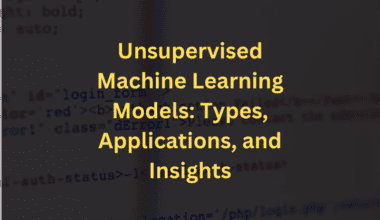Summary: Wondering whether to pick a data science bootcamps or a degree program? This blog compares both options—cost, time, skills, and outcomes—to help you choose wisely. Learn how each path prepares you for a successful data science career, and discover how Pickl.AI can support your learning goals.
Introduction
Companies across industries need people who can make sense of data. The demand is so high that the global data science platform market, worth $103.93 billion in 2023, is expected to grow to $776.86 billion by 2032. That’s a massive growth rate of 24.7% every year.
As interest in data science careers increases, so does confusion about how to get started. Two popular learning paths are Data Science Bootcamps and Data Science Degree Programs. But which one is better for you?
This blog will help you understand both options—what they offer, what they cost, how long they take, and what you can expect from each. By the end, you’ll be able to make the right call for your career.
Key Takeaways
- Bootcamps offer fast, practical training for those wanting to switch careers or upskill quickly.
- Degrees provide a deep theoretical foundation ideal for long-term academic or research roles.
- Bootcamps are shorter and more affordable, while degrees are costlier and time-intensive.
- Choosing the right path depends on your goals, current background, and learning style.
- Pickl.AI offers flexible data science courses that combine practical learning with expert guidance.
What Is a Data Science Bootcamp?

A data science bootcamp is a short, focused course that teaches you the essential skills to start working in data science. It is usually intense and fast-paced and lasts anywhere from a few weeks to one year.
These programs are designed to teach you practical, job-ready skills through hands-on projects. Most bootcamps offer certificates upon completion, which you can show potential employers.
Pros of a Data Science Bootcamp
Data Science bootcamps are a great option for those who want to learn practical skills quickly and start working in the field without spending years in school. They’re invaluable for career changers or anyone looking to upskill quickly. Here are some key benefits of choosing a bootcamp:
- Fast and Focused Learning: Learn only the most important tools and techniques quickly.
- Hands-On Projects: Work on real-world problems and build a portfolio to impress employers.
- Industry-Relevant Skills: Get trained in popular tools like Python, SQL, R, machine learning, and data visualization.
- Career Support: Receive help with resumes, interviews, and sometimes even job placements.
- Flexible and Affordable: Shorter duration, lower cost, and many online options make bootcamps more accessible.
- Great for Career Switching: Ideal for professionals from other fields who want to enter data science quickly.
Cons of a Data Science Bootcamp
While data science bootcamps can offer fast, practical training, they come with challenges. Understanding these drawbacks is important before deciding, especially if you’re new to the field or aiming for long-term career growth.
Here are some common cons of joining a data science bootcamp:
- Limited Depth: Bootcamps focus on job-ready skills but may skip advanced or theoretical topics.
- Fast-Paced Learning: The short, intense schedule can feel overwhelming, especially for beginners in coding or math.
- Less Emphasis on Theory: You’ll learn how to apply tools, but not always the deeper concepts behind them.
- Quality Varies: Some bootcamps are excellent, others not so much. Research is essential.
- No Academic Degree: You’ll earn a certificate, but not a university-recognized degree.
- Still Expensive: Though cheaper than degrees, bootcamps often cost Rs 25,000–2,00,000, and may require taking time off work.
What Is a Data Science Degree Program?

A Data Science Degree is a formal university program—usually a Bachelor’s or Master’s degree—that teaches both theory and practice. These programs take longer to complete, often 3 to 4 years, and are more academic.
You’ll study math, statistics, computer science, and learn to use tools like Python and R. In the end, you’ll earn a diploma or degree that’s widely recognized by employers.
Pros of a Data Science Degree
Choosing a degree in data science comes with several long-term advantages, especially if you’re aiming for a solid foundation and recognition in the industry. Unlike shorter programs, degree courses offer a deeper dive into both the theory and practice of data science, along with strong academic and career-building support.
Here are some key benefits of pursuing a data science degree:
- Comprehensive Learning: You’ll explore various topics—from basic statistics to advanced subjects like AI and machine learning.
- Strong Theoretical Foundation: You’ll understand the principles behind the tools, helping you solve complex problems and adapt to future tech changes.
- Research Opportunities: Many degree programs allow students to participate in academic research, publish papers, or work on real-world problems with professors.
- Recognition and Credibility: Employers value a degree from a reputable institution, which can lead to better job prospects.
- Access to Expert Faculty: Professors offer mentorship and career guidance and often help you connect with job opportunities.
Cons of a Data Science Degree
While a Data Science degree can offer comprehensive knowledge and opportunities, it also has drawbacks. Here are the main challenges to consider:
- High Cost: Degree programs can be expensive, ranging from Rs 3 Lakhs to Rs 20 Lakhs, with additional costs for textbooks, lab tools, and other materials.
- Takes More Time: A degree typically takes 3 to 4 years to complete, which may not be ideal if you’re eager to start your career sooner.
- Admissions Are Competitive: Gaining admission to a good university can be difficult. You must undergo a selection process, and acceptance isn’t guaranteed.
- May Require Relocation: Many top programs are in-person, so you may need to move to another city or country, which will add to the overall expense.
- Outdated Curriculum: Degree programs may not always keep up with the latest industry trends and tools, leaving gaps in your knowledge.
- No Job Guarantee: A degree doesn’t guarantee employment. You’ll still need to compete in the job market; placement support can vary.
Data Science Bootcamp vs. Degree Program: A Side-by-Side Comparison
So, Which One Should You Choose?
It depends on your personal goals, budget, and current situation.
Choose a Bootcamp if:
- You want to switch careers quickly.
- You prefer practical, hands-on learning.
- You already have a degree and want to upskill.
- You don’t want to spend years in school.
Choose a Degree if:
- You’re starting your career and want deep, long-term knowledge.
- You can invest time and money in a solid academic foundation.
- You want to work in research, academia, or large corporations.
- You value a formal qualification that’s widely recognized.
Rounding Up
Whether you choose a Data Science Bootcamp or a Degree Program, both paths can lead to exciting opportunities. The demand for skilled data professionals is only going to grow. What matters most is your willingness to learn, practice, and stay updated.
Take the time to reflect on your goals, research your options carefully, and choose the path that aligns best with your career vision. In the world of data, smart choices today lead to big rewards tomorrow.
To begin your journey, check out Pickl.AI’s data science courses, designed for beginners and professionals. With expert mentors, hands-on projects, and flexible learning options, Pickl.AI bridges the gap between theory and real-world application. Start learning data science the smart way—your future in tech begins today.
Frequently Asked Questions
Are data science bootcamps worth it in 2025?
Yes, bootcamps are worth it if you want to switch careers or gain job-ready skills quickly. They’re affordable, flexible, and often include career support and hands-on projects.
Is a degree necessary to become a data scientist?
No, a degree isn’t strictly necessary. Many employers value skills and experience over formal education. Bootcamps, certifications, and strong portfolios can also open doors.
Which is better for career switching—bootcamp or degree?
Bootcamps are better suited for career switchers due to their short duration, practical focus, and industry alignment. Degrees take longer and are more theory-based, ideal for long-term academic goals.




